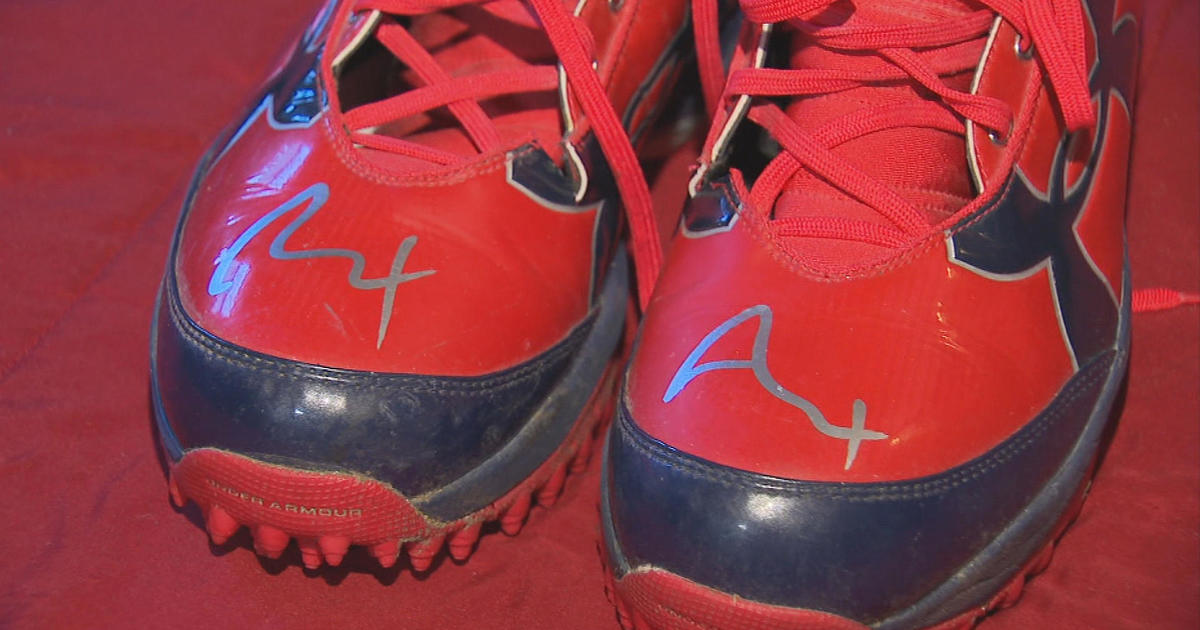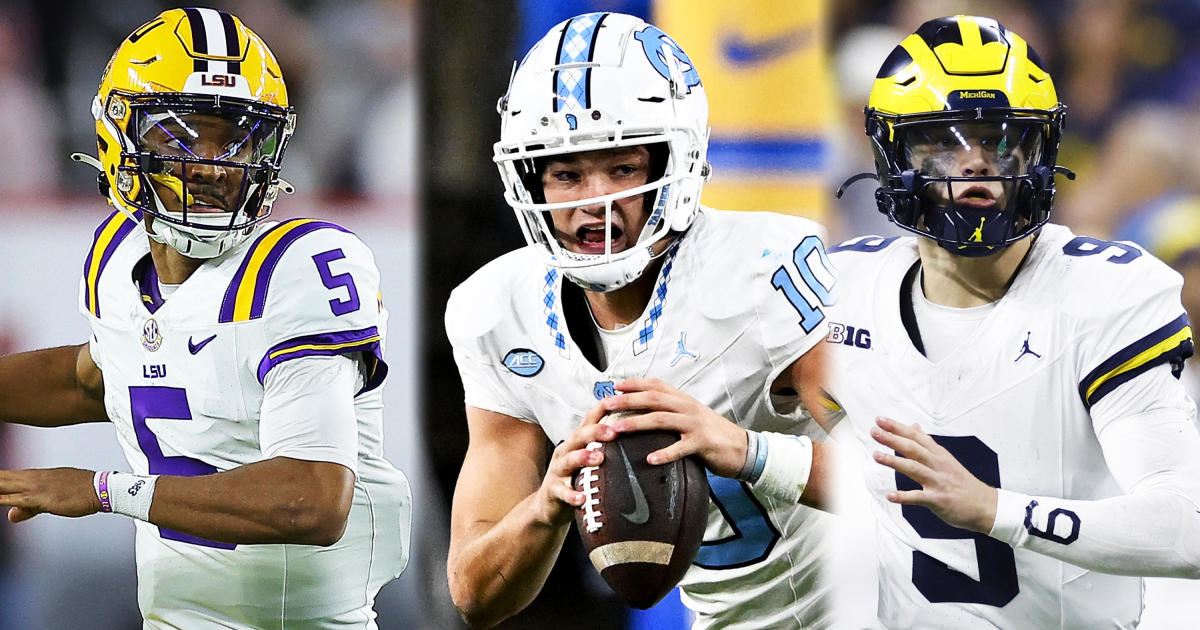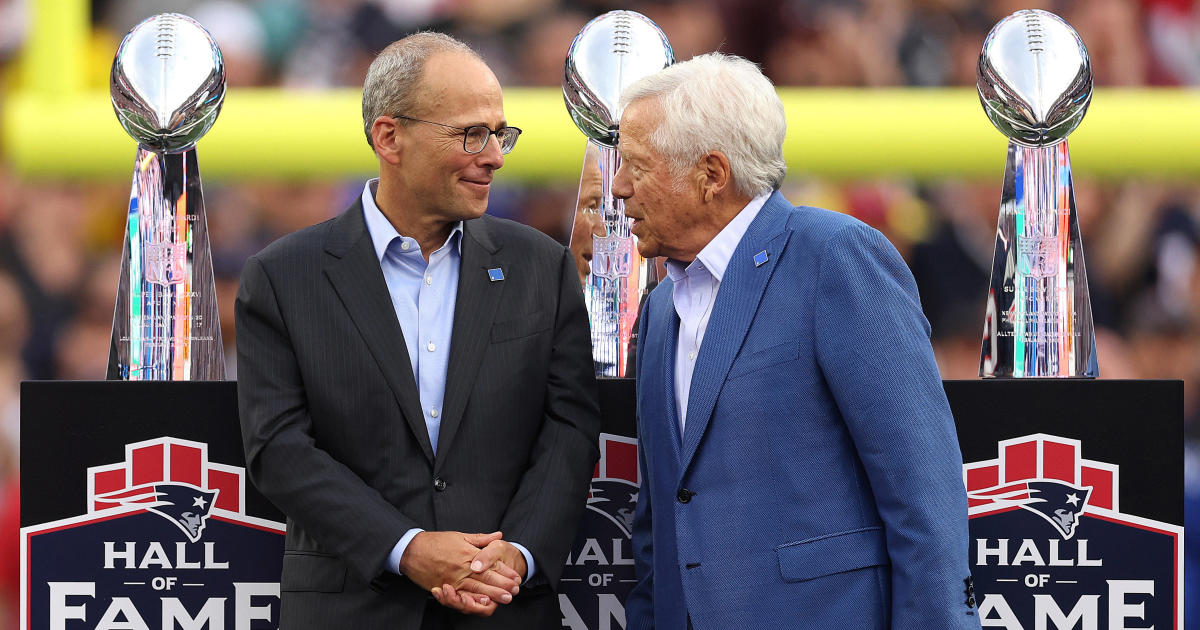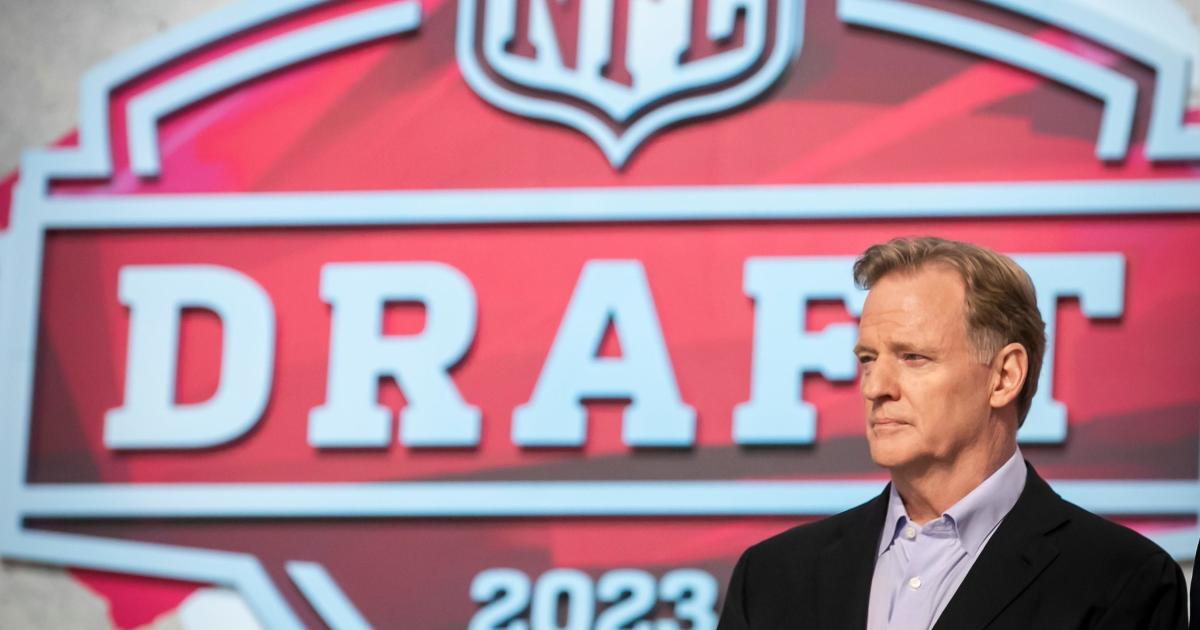Hurley: Steve Spagnuolo Didn't Really Say Anything Wrong When Accusing Patriots Of Stealing Signals In Super Bowl Win Over Eagles
By Michael Hurley, CBS Boston
MINNEAPOLIS (CBS) -- For as long as there have been football coaches on sidelines sending signals to players on the field, there have been coaches on the other sidelines trying to steal those signals.
That tends to get forgotten whenever the words "Patriots," "cheat," "steal" or "spying" are used together in a story. And so when there was quite a bit of hubbub surrounding former Eagles linebackers coach Steve Spagnuolo saying the Patriots knew the Eagles' signals during Super Bowl XXXIX, it's not at all surprising.
But the outrage -- both from the "PATS ARE DIRTY CHEATERS!" crowd as well as the Patriots fans quick to jump to the team's defense -- is probably a bit misguided.
"The biggest thing we learned was make sure you have two signal callers, not one signal caller. Because they may have all your signals."
"I remember through the course of the game, [defensive coordinator Jim Johnson] saying, 'They're getting our signals. They know when we're blitzing … try to hide it, etc. etc.' I remember distinctly thinking 'Jim I don't think that's true.' Now I'm not saying this to him, because I don't want to upset him. I'm saying it to myself. 'I don't think so, Jim, just concentrate on calling the game.'"
"In hindsight, he was right. When you go back and look at that tape, it was evident to us."
"I'm not crying over spilled milk here, but we believed that Tom knew when we were pressuring, because he certainly got the ball out pretty quick. But, you know, you got to play the game, and they won that particular day."
Whether or not Johnson was actually right is almost irrelevant, and it has nothing to do with "Spygate."
"Spygate" was only illegal because Patriots employees were filming sidelines from the wrong location. Bill Belichick disregarded a league memo, and a militant Roger Goodell showed the brash head coach who was boss with an unprecedented penalty.
The actual act of filming coaches on the sideline? It was not illegal. It was quite common. Here's John Madden in 1992 (in albeit slightly dramatic YouTube edit) talking about how teams would use multiple people to send signals to the players, because they knew their opponent had film on them:
Here's a quote from former Steelers head coach Bill Cowher in 2014: "It was something that everybody does. The only thing they got caught [was] doing it with a camera. We had people that always tried to steal signals. Stealing someone's signals was a part of the game, and everybody attempted to do that."
Troy Aikman once let it slip that Jimmy Johnson's Cowboys staff used to film opponents' signals.
As Belichick put himself when he broke a near-decade of silence on the matter: "The guy's giving signals out in front of 80,000 people, OK? So we filmed him taping signals in front of 80,000 people like there were a lot of other teams doing at that time – forget about that – if we were wrong, then we've been disciplined for that ... . The guy's in front of 80,000 people -- 80,000 people saw it. Everybody sees our guy in front of 80,000 people. I mean, there he is."
Here's a great lede from a 2007 Chicago Tribune story: "Paul Brown, a historically innovative football coach, was so sure Bears counterpart George Halas was taping his conversations when Brown brought his NFL teams to Chicago that he would speak to his Cleveland Browns quarterbacks only in the Wrigley Field showers, Mike Ditka recalled recently."
There's an applicable quote from Ditka in that same story: "To steal signals from the booth, everybody's done it. There are a lot of ways to cheat, a lot of ways of stealing signals, and if a team's not smart enough to change their signals, they deserve to be stolen."
(Ditka did take issue with the use of a camera.)
And that's really what Spagnuolo is saying. If the Eagles were indeed suspicious that the Patriots had figured out their signals, then it's solely the fault of the Eagles' coaching staff for not adjusting. Whether that meant having a second set of signals, using some dummy signal callers, or literally doing anything at all except keep plodding along and hoping things work out, the onus at that point fell on the Eagles to adjust as they saw necessary.
They did not adjust.
Some of Spagnuolo's and the rest of the Eagles' insinuations about that game are a bit humorous. They claim that Brady and the Patriots knew when the blitzes were coming, thus allowing the Patriots to pick up huge gains with quick passes. Perhaps -- this is just a spontaneous idea -- they should have stopped blitzing? I mean, it's not as if Brady hasn't made an entire career out of carving up defenses who dare blitz him, right?
There's also the inconvenient detail about the Eagles not doing a very good job on Corey Dillon, who ran for 75 yards and a touchdown. And the fact that the Patriots gained just 331 yards of offense that night, down from their season average of 358.
It's also comical that anyone could have watched Super Bowl XXXIX and conclude that anyone but Andy Reid and Donovan McNabb cheated the Eagles out of a championship.
McNabb threw three interceptions, one of which came three yards before the end zone and took place exactly one snap after a defensive penalty negated a different interception. It was also maybe the ugliest pass in Super Bowl history. Another interception was just brutal quarterbacking. (L.J. Smith also lost a fumble.)
And there was Reid. The head coach's befuddlement over the existence of time was never on display more than it was on Feb. 6, 2005. The Eagles got the ball with 5:40 left in the fourth quarter, trailing by 10 points. They methodically marched down the field, huddling between plays, with McNabb looking exhausted and the offense looking like it had absolutely no plan. They took nearly four full minutes to score a touchdown. They did not recover the onside kick. They lost the Super Bowl.
Oh! Also, the Eagles gave up a touchdown pass to Mike Vrabel, even though Mike Vrabel only entered games on offense to catch wide open touchdown passes. That wasn't spying or cheating. It was just the Eagles being woefully unprepared and unable to execute on the game's largest stage. And it's Brady throwing one of the easiest of his NFL record 68 postseason touchdowns.
And that's what it really comes down to. Maybe to the uninitiated, the sound of a team "stealing" signals is distasteful. From all we've learned about sportsmanship and right and wrong since we were kids, it sounds wrong.
But professional sports are not played in CandyLand. Trying to gain an edge over an opponent is a critical element of every single sport. Catchers have elaborate systems to send signals to pitchers when opposing runners are on second base. Hockey centermen do whatever they can to gain an inch of advantage on faceoffs. Football coaches and players pore over hours and hours of film every single week, looking for any minute detail that might help win a game on Sunday.
Right or wrong, looking to gain an advantage takes place in every sport at all times. Often, it's the team that adjusts that ends up winning more often than not.
Spagnuolo knows that, too. He was the defensive coordinator of the Giants when they defeated the 18-0 Patriots in Super Bowl XLII. After giving up 38 points to the Patriots in Week 17, the Giants broke down some film, devised a better game plan, and shocked the world by holding the record-setting offense to just 14 points.
His comments now about a Super Bowl from 13 years ago? They reflect worse on the Eagles than they do anybody else.
You can email Michael Hurley or find him on Twitter @michaelFhurley.



